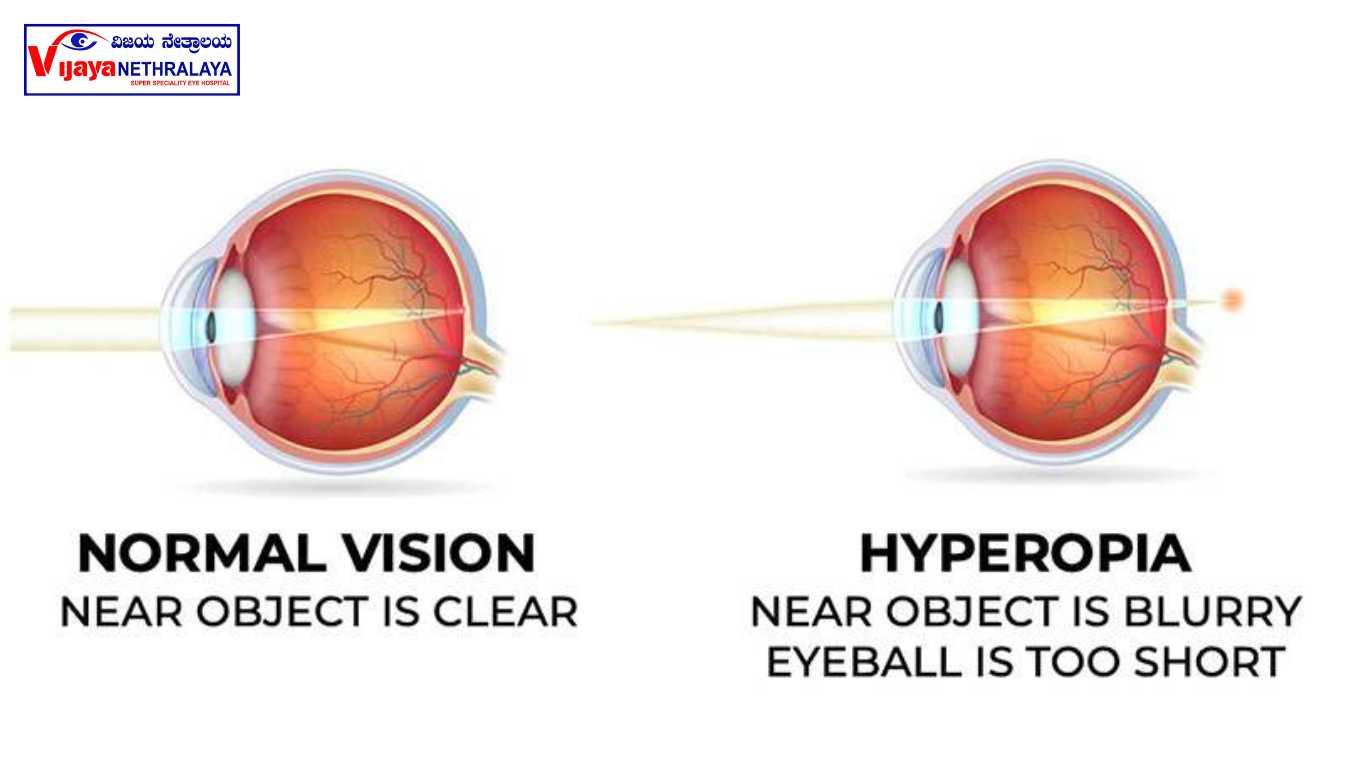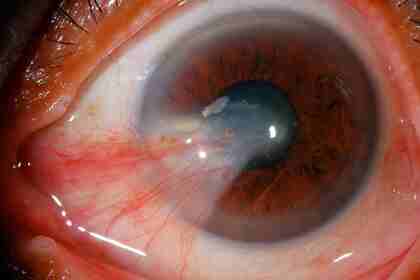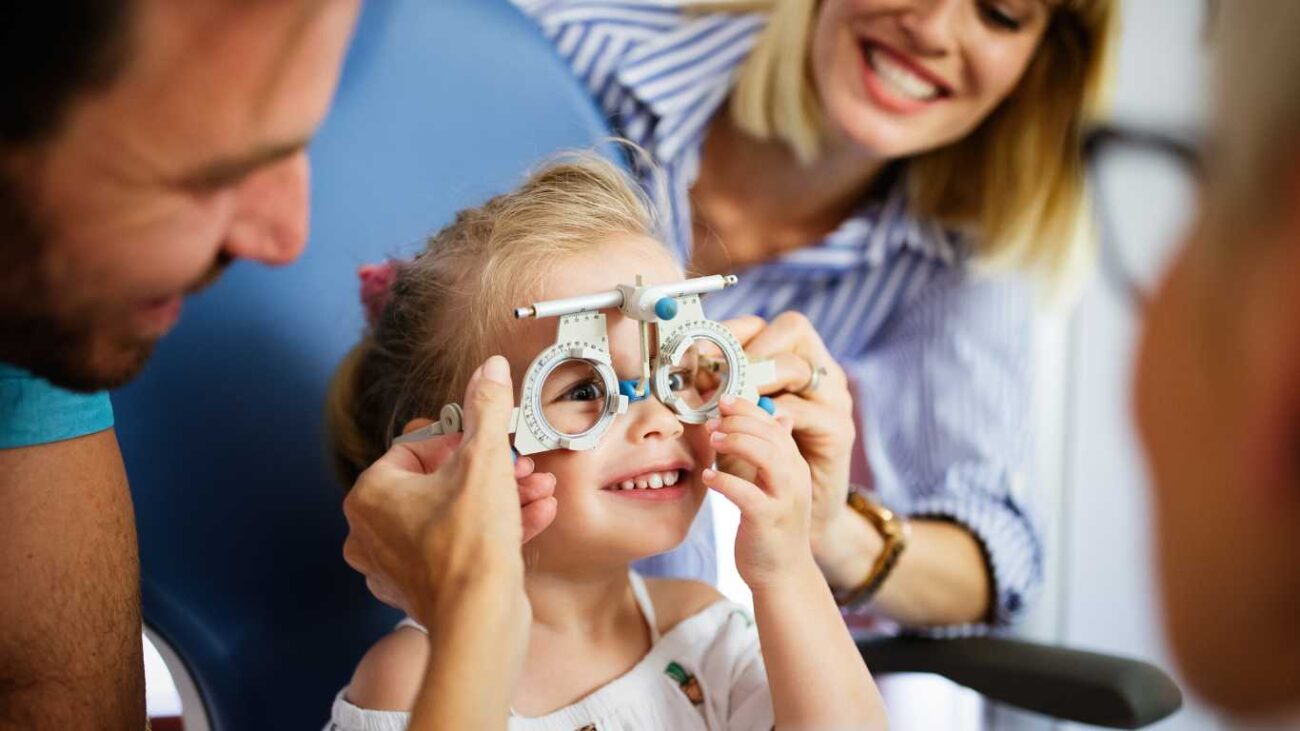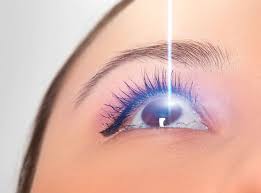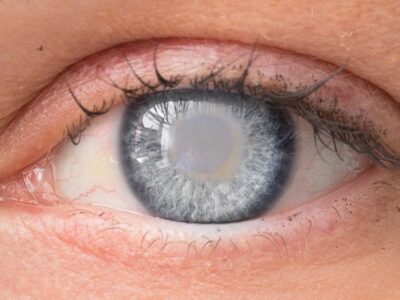Introduction:
Are you one of those people who find themselves struggling to read the fine print or deciphering messages on your smartphone up close? If so, you might be dealing with hyperopia, commonly known as farsightedness. In this article, we’ll take a deep dive into what hyperopia is, its causes, symptoms, available treatments, and how you can manage this condition to regain your clear vision. Hyperopia, or farsightedness, is a common refractive error that affects how your eyes focus on nearby objects. Unlike myopia (nearsightedness), where distant objects are blurry, hyperopia causes close-up objects to appear fuzzy while distant objects remain clearer.
What causes hypermetropia?
It occurs when the light entering your eye focuses behind the retina instead of directly on it. This can happen due to an eyeball that is too short or a cornea with insufficient curvature. Genetic factors can play a role in hyperopia, and it often runs in families.

Recognizing the Symptoms of Hyperopia:
Individuals with this often experience eyestrain, headaches, and fatigue after engaging in tasks that require close-up focus. Reading, using a computer, or doing intricate work can become challenging and uncomfortable.
Diagnosis and Eye Exams:
A comprehensive eye exam is crucial for diagnosing hyperopia. Eye care professionals use various tests, such as the visual acuity test and a retinoscopy, to determine the degree of farsightedness and recommend appropriate corrective measures.
Understanding Refractive Errors:
Refractive errors like hyperopia can be corrected using eyeglasses or contact lenses. Moreover, these corrective lenses help direct light onto the retina, ensuring clear and focused vision.
Hyperopia in Children:
Children can also experience hyperopia, which might go unnoticed as they may not complain about vision problems. Regular pediatric eye exams are essential for early detection and appropriate management.
Managing Hyperopia: Eyeglasses and Contact Lenses
Eyeglasses and contact lenses are effective ways to manage hypermetropia. Furthermore, these corrective devices come in various styles and prescriptions, catering to individual preferences and needs.
Refractive Surgery Options:
For those seeking a more permanent solution, refractive surgery is an option. Procedures like LASIK or PRK reshape the cornea, allowing light to properly focus on the retina. However, thorough consultations with an eye surgeon are crucial before opting for surgery.
Lifestyle Adjustments for Better Vision:
Maintaining a healthy lifestyle, including a balanced diet and regular exercise, can contribute to better eye health. Adequate lighting and taking breaks during prolonged close-up tasks can also alleviate discomfort associated with hyperopia.
Prevention and Eye Health:
While you can’t entirely prevent hypermetropia, taking care of your eyes can minimize its impact. Protect your eyes from harmful UV rays, give them regular breaks, and maintain proper hygiene to reduce the risk of eye infections.
Hyperopia vs. Myopia: What’s the Difference?
Hyperopia and myopia are two common refractive errors, but they affect vision differently. Understanding the distinctions between these conditions can help you comprehend your eye health better.
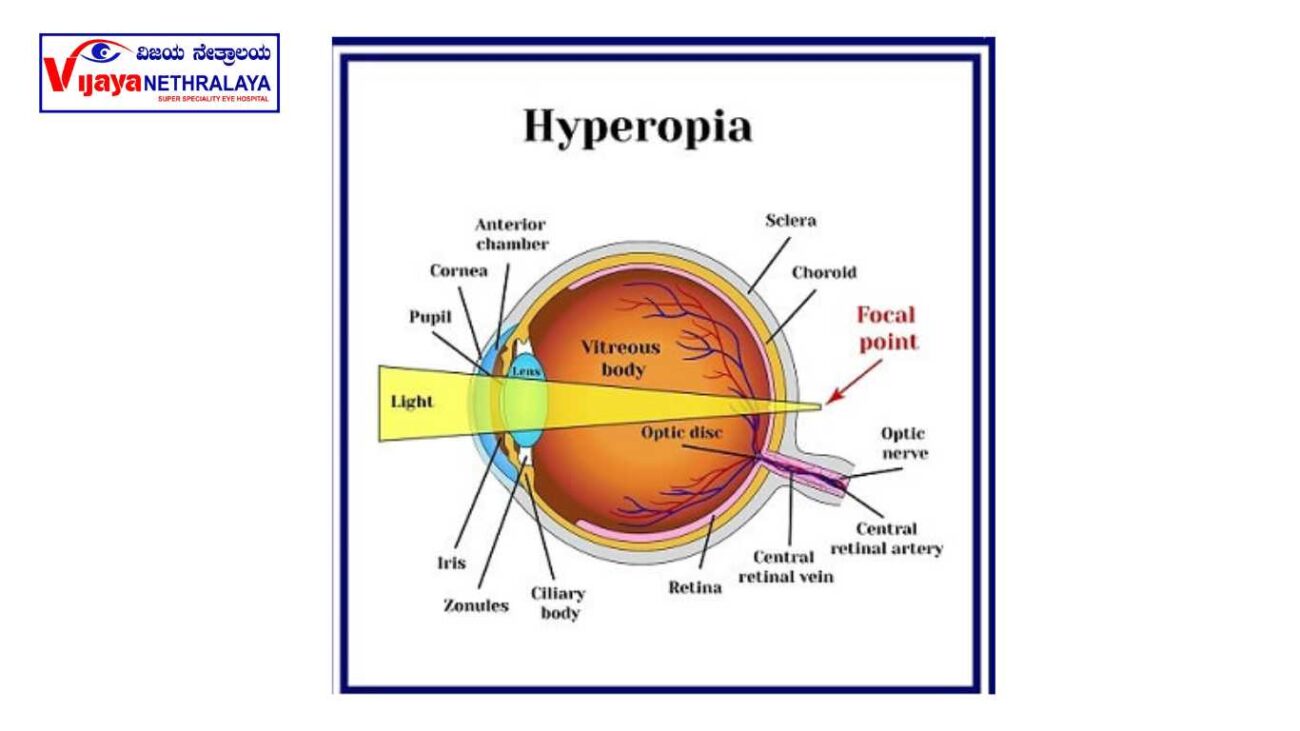
The Importance of Regular Eye Check-ups:
Regular eye checkups are essential for everyone, even if you don’t notice any vision problems. Early detection of refractive errors and other eye conditions can prevent the worsening of symptoms and promote overall eye health.
Caring for Your Eyes:
Simple practices like maintaining a comfortable reading distance, following the 20-20-20 rule (looking at something 20 feet away for 20 seconds every 20 minutes), and avoiding excessive screen time can contribute to healthier eyes.
Debunking Common Misconceptions About Hyperopia:
There are several misconceptions about hypermetropia that need to be addressed. By clearly separating facts from myths, individuals can make well-informed decisions about their eye care.
Conclusion:
It is a prevalent vision issue that can impact your daily life. However, with the right knowledge, regular eye care, and proper corrective measures, you can manage this condition effectively and enjoy clear, comfortable vision.
Author Details:
Dr. Sushruth Appajigowda holds a prominent position as a cornea, cataract, glaucoma, and LASIK surgeon in Bangalore. He serves as the chief cataract and refractive surgeon at Vijaya Nethralaya Eye Hospital, Nagarbhavi, Bangalore. Renowned as one of the finest LASIK surgeons nationwide, he brings with him over 12+ years of experience across multiple LASIK platforms, including ZEISS, ALCON, SCHWIND, AMO, and Bausch and Lomb. Having successfully conducted over 5000 LASIK procedures, Dr. Sushruth holds the title of a Certified Refractive Surgeon and a Fellow of the All India Collegium of Ophthalmology. Furthermore, he stands as a distinguished speaker at various national and international forums, using his expertise to guide you in selecting the most suitable procedure based on your health requirements.

http://vijayanethralaya.com/link-in-bio/
FAQs:
1. Can hyperopia develop suddenly?
It is usually develops gradually over time, but sudden vision changes should be evaluated by an eye care professional.
2. Can hyperopia be cured naturally?
While you can’t cure hyperopia naturally, maintaining eye health through a healthy lifestyle can help manage the condition.
3. Are there any age restrictions for refractive surgery?
Age restrictions for refractive surgery can vary, but most surgeons prefer performing these procedures on individuals over 18 years old.
4. Can hyperopia lead to other eye problems?
Untreated hyperopia can lead to eyestrain and discomfort. Therefore, it’s essential to address it to prevent potential complications.
5. How often should I have an eye exam?
Adults should have a comprehensive eye exam at least every two years, while children and individuals with certain risk factors might need more frequent exams.

